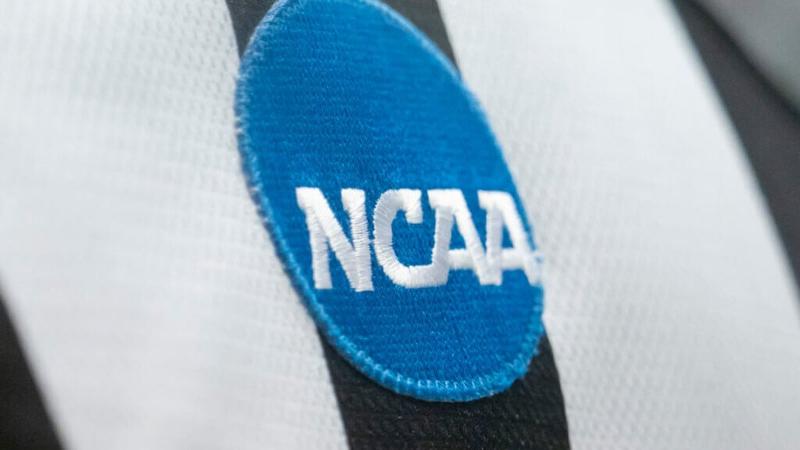The NCAA is reevaluating its penalties for student-athletes who engage in sports betting, aiming to adjust them to better suit the current landscape. This article delves into why the NCAA is considering these changes and discusses some of the potential alterations that could be implemented.
NCAA Considers Changing Penalties
Exploring the reasons behind the NCAA's reconsideration of penalties for student-athletes involved in sports betting.
In response to the evolving landscape of sports betting, the NCAA is contemplating altering its penalties for student-athletes who engage in such activities. This reevaluation aims to ensure that the penalties better align with the current environment.
The NCAA's decision comes as a result of deep research and analysis as well as input from college-aged individuals and student-athletes themselves. The possibility of implementing less severe penalties for certain types of sports betting not involving one's own team is being considered.
This potential shift in penalties is warranted in light of the widespread legalization of sports betting across the country. It reflects a recognition from the NCAA of the need to adapt to changing societal dynamics and explore new approaches to student-athlete behavior in the context of evolving sports betting regulations.
Background of the Debate
Understanding the underlying factors driving the need for reevaluating the existing penalties.
The NCAA's initiative to revise the penalties for student-athletes involved in sports betting follows several high-profile cases, most notably at Iowa and Iowa State, where student-athletes faced disciplinary action for their betting activities.
As the NCAA investigations progressed, it became apparent that the existing penalties were not sufficiently tailored to gambling situations where athletes did not bet on their own team. It highlighted the need to differentiate between various types of sports betting activities and impose appropriate penalties in each case.
The goal is twofold: to protect collegiate student-athletes from the vulnerabilities associated with excessive gambling and to further their understanding of responsible sports wagering, increasing their overall awareness of the industry.
Proposed Changes
Evaluating the draft concepts that could lead to changes in penalties for student-athletes regarding sports betting.
The draft concepts under consideration outline a tiered system of penalties for student-athletes. For a first offense involving sports betting not related to one's own team, a temporary suspension penalty might be removed, provided the student-athlete elucidates understanding of sports wagering rules and prevention through mandatory education.
If a second offense occurs, penalties such as temporary suspensions may be considered depending on factors such as the monetary value of bets and the types of sports involved.
In cases of a third or subsequent offense, a student-athlete could risk losing a full season of eligibility, reinforcing the severe consequences resulting from recurring violations.
Protecting Student-Athletes
The NCAA's commitment to safeguarding student-athletes from harassment and coercion in relation to sports betting.
The NCAA not only aims to adapt its rules regarding penalties for sports betting but also intends to actively pursue changes to sports betting laws to ensure increased protection for student-athletes.
By pushing for regulations that address harassment and coercion experienced by student-athletes related to wagering, they aspire to provide a healthy environment conducive to sporting success while mitigating potential harmful influences.
These protective measures would further demonstrate the NCAA's commitment to foster the personal growth and well-being of student-athletes by promoting responsible behavior and safe practices in sports betting.
Conclusion
The NCAA's contemplation of changing the penalties for student-athletes participating in sports betting signifies an important step towards adjusting the organization's rules to better suit the prevalence of legalized gambling across the country. By reevaluating the penalties, the NCAA aims to strike a balance between offering education and support to student-athletes while effectively addressing the potential risks associated with sports betting. These potential changes reflect the NCAA's commitment to adapt and protect collegiate athletes within a shifting landscape.
FQA
Why is the NCAA reconsidering its penalties for student-athletes involved in sports betting?
The NCAA is reassessing the penalties to ensure that they are better aligned with the current landscape of legalized sports betting across the country.
What are some of the draft concepts under consideration for the proposed changes in penalties?
The draft concepts include different tiers of penalties based on the offense, with a focus on educating student-athletes about sports wagering rules and prevention for the first offense.
How does the NCAA plan to protect student-athletes from harassment and coercion related to sports betting?
The NCAA intends to push for changes to sports betting laws that would address harassment and coercion experienced by student-athletes, fostering a safer and healthier environment for their development and success.

